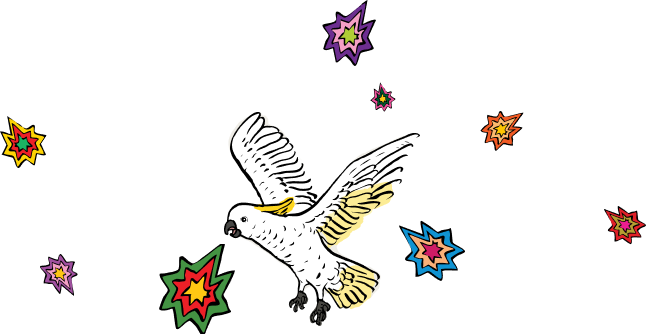Reviewed by: thebarefootreview.com.au
Fafi D’Alour Uncut
Sat 17 February
Ukiyo / Gluttony
Until Sunday 25 February
This is burlesque in a pure and simple rendition of the art. A melange of song and dance and provocative pose and skin and flesh and love and emotion. Some small parts are mimed, but the best of them is sung by Eliza Dickson.
For reasons which should become clear this review may turn into a polemic. Last year the majority of this cast treated us to ‘Bones’, a nails-sharpened clawing reveal of the beauty and fashion industry. This year ‘Uncut’ does more, cuts deeper, then seeks to draw more than a little blood. Under the guidance of Fafi D’Alour it begins with a premise and part of an explanation for the show itself, using the power of song in Portishead’s Glory Box. In simple terms, it sets the stage for what is to come.
Fafi D’Alour becomes the dominant presence on stage, a huge red hat atop her head, drapes of red cloth obscuring her features, and attended by four acolytes (Dickson, Georgia Rose, Sarah Wilson and Tara Beyne), who work to the grind of a pure burlesque in When You’re Good For Mama. What is revealed becomes confronting theatre, especially so for men since in looking at the society of man (yes, I intended the pre-eminence of gender in this examination) D’Alour makes a level of disdain clear.
Working through some simple devices; fire eating, fire breathing, acrobatics, rope gymnastics and calisthenics and the songs which Dickson brings to life (Nobody Is Perfect) the five performers set out their view of the state of society and how it relates to them.
As we close in on the end of the show we close in on the bottom line of the performance – please do excuse that excruciating pun – as the cast bring to life the song Lick My Pussy, Lick My Crack. Ah, sapphic erotica, one of the great staple items of burlesque. And to round things out, the evil which does dare speak its name is introduced in the guise of Abba’s Money Money Money and thence the Flying Lizards 1979 hit Money. So that’s clear!
Look, uncut is great burlesque because it exists on a diet of rage and love, but its message is in the same way inchoate. D’Alour will combine her dislikes and her injustices into one great scorecard of grievance, and that makes the performance almost visceral, especially for an increasingly fervent audience.




